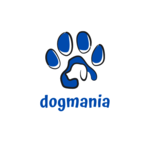The Ultimate Guide to Understanding Protein Requirements for Dogs
Protein is an essential nutrient for dogs, playing a crucial role in their overall health and well-being. Understanding the protein requirements for your canine companion is paramount to ensuring they lead a happy and healthy life. In this comprehensive guide, we delve into everything you need to know about protein for dogs, including its importance, sources, and how to ensure your furry friend receives adequate amounts.
Importance of Protein for Dogs
Protein is often referred to as the building block of life, and this holds true for dogs as well. It is vital for the growth, repair, and maintenance of tissues, muscles, organs, skin, and coat. Additionally, proteins are involved in the production of enzymes, hormones, and antibodies, which are essential for various physiological functions and immune system support.
Protein Requirements
The protein requirements for dogs vary depending on factors such as age, breed, size, activity level, and overall health. Puppies, for instance, require higher levels of protein to support their rapid growth and development, while senior dogs may need less but still require quality protein for muscle maintenance and repair.
A general guideline is that adult dogs should consume a diet containing at least 18% protein, while puppies may need a diet with 22% or more protein content. However, it's essential to consult with your veterinarian to determine the specific protein needs of your dog based on their individual characteristics.
Sources of Protein
Protein for dogs can be derived from various sources, including animal-based and plant-based sources. Animal-based proteins, such as meat, poultry, fish, and eggs, are considered to be complete proteins as they contain all the essential amino acids that dogs need. These sources are highly digestible and provide the necessary nutrients for optimal canine health.
Plant-based proteins, such as soy, lentils, and beans, can also contribute to a dog's protein intake. However, they are not considered as complete as animal-based proteins and may require supplementation to ensure all essential amino acids are provided. While some dogs thrive on a vegetarian or vegan diet, it's essential to consult with a veterinarian or canine nutritionist to ensure their nutritional needs are met.
Quality vs. Quantity
When it comes to protein for dogs, quality is just as important as quantity. Opt for high-quality, lean protein sources that are free from fillers, by-products, and artificial additives. Look for dog foods that list a named animal protein, such as chicken, beef, or fish, as the first ingredient. Avoid products that contain excessive amounts of carbohydrates or unhealthy fats, as these can lead to weight gain and other health issues.
Protein Allergies and Sensitivities
Some dogs may develop allergies or sensitivities to certain proteins, manifesting as skin irritation, digestive upset, or other symptoms. Common protein allergens in dogs include beef, chicken, dairy, and grains. If you suspect your dog has a protein allergy or sensitivity, consult with your veterinarian to determine the underlying cause and develop an appropriate dietary plan.
Protein Supplements
In some cases, such as during periods of illness, recovery, or intense physical activity, dogs may benefit from protein supplements to support their nutritional needs. Protein supplements come in various forms, including powders, treats, and chews, and can provide an extra boost of protein when needed. However, it's essential to use supplements under the guidance of a veterinarian to ensure they are safe and appropriate for your dog's specific circumstances.
conclusion
Protein is a vital nutrient for dogs, contributing to their overall health, vitality, and longevity. By understanding the importance of protein, sourcing high-quality protein sources, and meeting your dog's individual protein requirements, you can ensure they thrive and live their best life. Remember to consult with your veterinarian for personalized dietary recommendations and to address any concerns regarding your dog's protein intake. With proper nutrition and care, you can support your canine companion's well-being for years to come.



leave me your thoughts here